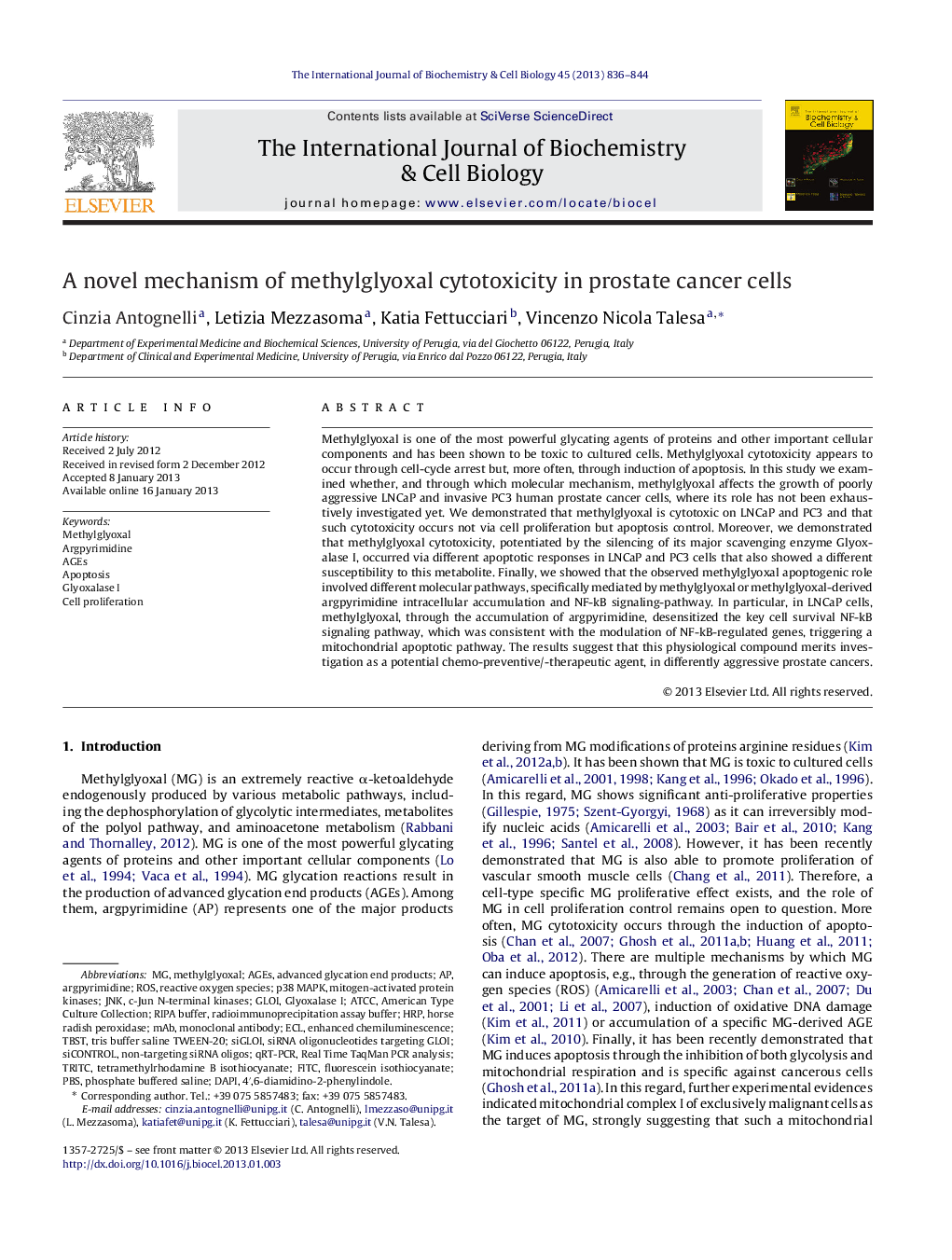| Article ID | Journal | Published Year | Pages | File Type |
|---|---|---|---|---|
| 8324223 | The International Journal of Biochemistry & Cell Biology | 2013 | 9 Pages |
Abstract
Methylglyoxal is one of the most powerful glycating agents of proteins and other important cellular components and has been shown to be toxic to cultured cells. Methylglyoxal cytotoxicity appears to occur through cell-cycle arrest but, more often, through induction of apoptosis. In this study we examined whether, and through which molecular mechanism, methylglyoxal affects the growth of poorly aggressive LNCaP and invasive PC3 human prostate cancer cells, where its role has not been exhaustively investigated yet. We demonstrated that methylglyoxal is cytotoxic on LNCaP and PC3 and that such cytotoxicity occurs not via cell proliferation but apoptosis control. Moreover, we demonstrated that methylglyoxal cytotoxicity, potentiated by the silencing of its major scavenging enzyme Glyoxalase I, occurred via different apoptotic responses in LNCaP and PC3 cells that also showed a different susceptibility to this metabolite. Finally, we showed that the observed methylglyoxal apoptogenic role involved different molecular pathways, specifically mediated by methylglyoxal or methylglyoxal-derived argpyrimidine intracellular accumulation and NF-kB signaling-pathway. In particular, in LNCaP cells, methylglyoxal, through the accumulation of argpyrimidine, desensitized the key cell survival NF-kB signaling pathway, which was consistent with the modulation of NF-kB-regulated genes, triggering a mitochondrial apoptotic pathway. The results suggest that this physiological compound merits investigation as a potential chemo-preventive/-therapeutic agent, in differently aggressive prostate cancers.
Keywords
AGEsTetramethylrhodamine B isothiocyanateTRITCTBSTATCCECLDAPIqRT-PCRHRPFITCJnkPBSmAb4′,6-diamidino-2-phenylindolec-Jun N-terminal kinasesp38 MAPKROSMonoclonal antibodyArgpyrimidineRIPA bufferradioimmunoprecipitation assay bufferenhanced chemiluminescenceCell proliferationApoptosisPhosphate buffered salinefluorescein isothiocyanateMethylglyoxalAmerican Type Culture CollectionAdvanced glycation end productshorse radish peroxidasemitogen-activated protein kinasesglyoxalase IReactive oxygen species
Related Topics
Life Sciences
Biochemistry, Genetics and Molecular Biology
Biochemistry
Authors
Cinzia Antognelli, Letizia Mezzasoma, Katia Fettucciari, Vincenzo Nicola Talesa,
